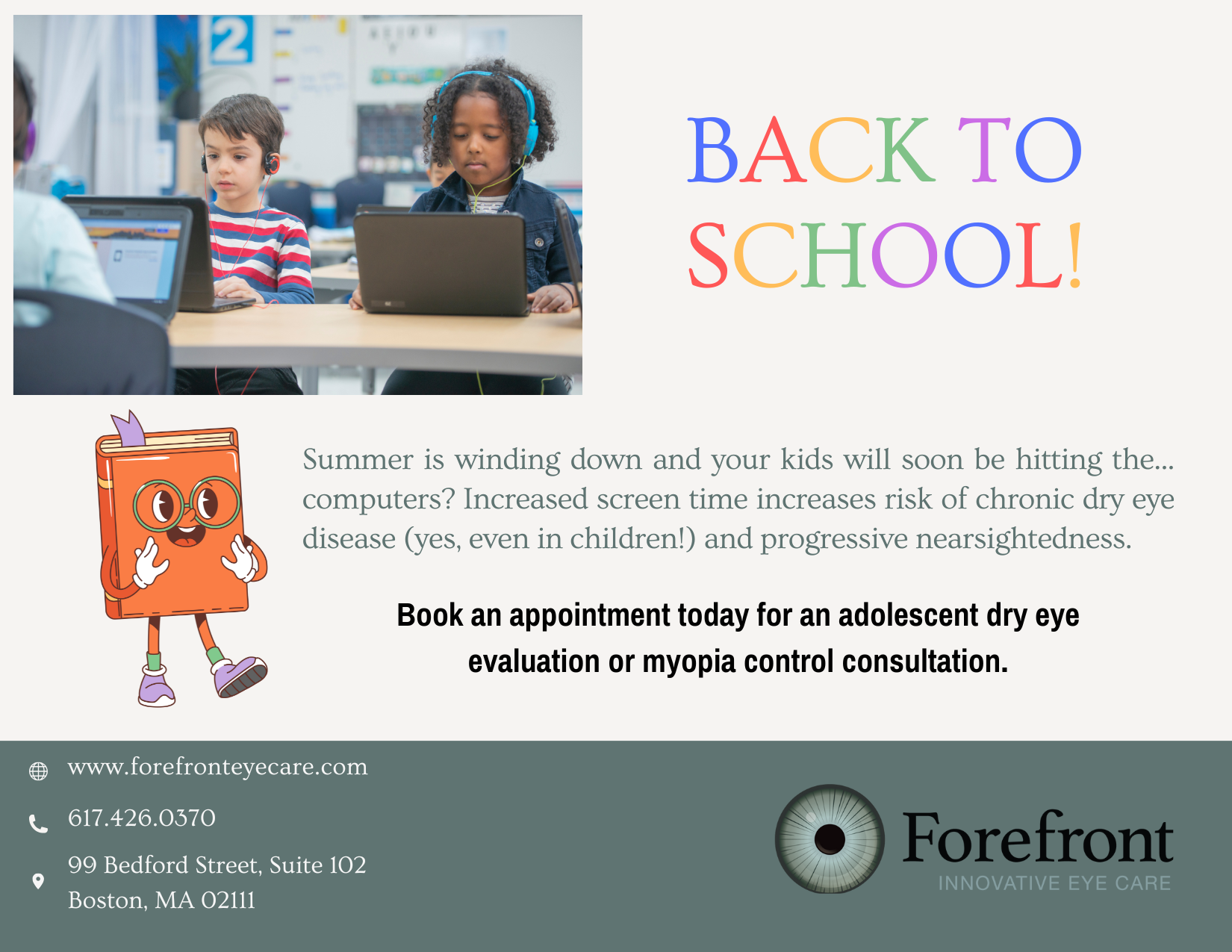The doctors at Forefront Eye Care are internationally recognized as leaders in the field of ocular surface disease and dry eye. We continue the legacy of Dr. Donald Korb, who pioneered many of the concepts and treatments for dry eye that have had a global influence on both clinicians and researchers. Our involvement in research, lecturing, and teaching on the subject compels us to remain at the forefront of this field, which benefits our patients. In addition to the development of Lipiflow, the Lipiview, DET test strips, Meibomian Gland Evaluator, and Systane Balance. We have over 55 patents in the area of dry eye. Please see our research page for a list of recent activities.
Ocular surface disease is one of the most common reasons that patients visit the eye doctor. Many types of ocular surface problems result in similar symptoms of burning, itching, foreign body sensation, redness, grittiness, blurred vision, loss of eyelashes, and in some cases the inability to tolerate contact lenses. The term “dry eye” is often used to describe these symptoms, but there are actually many causes for the ocular surface disease. When the eye is not adequately protected, a cascade of inflammation ensues which damages the eye and causes discomfort.


The tears are the eye's defender. The structure and function of each component that contributes to the tear film must be evaluated. In addition, a careful medical history is critical for systemic problems such as autoimmune disorders or cancer treatments that can have sometimes serious consequences for the surface of the eye. Some ocular surgeries also predispose to dry eye issues. Allergies, exposure to chemical irritants, and use of contact lenses can provide clues to symptoms. Eyelid surgery or the use of Botox can sometimes lead to the development of ocular surface disease. In some cases, such as trauma or thyroid eye disease, the eyelids fail to protect the ocular surface. Other common problems include blepharitis and mites in the eyelashes.
In addition, lifestyle choices can have an enormous impact. The use of screens, poor nutrition, lack of exercise, dehydration, poor sleep, and the use of cosmetics can contribute to ocular surface disease.
Proper treatment is rooted in the discovery of each factor which prevents the eye from being adequately protected. Early intervention results in better outcomes than waiting until significant inflammation has become entrenched.







